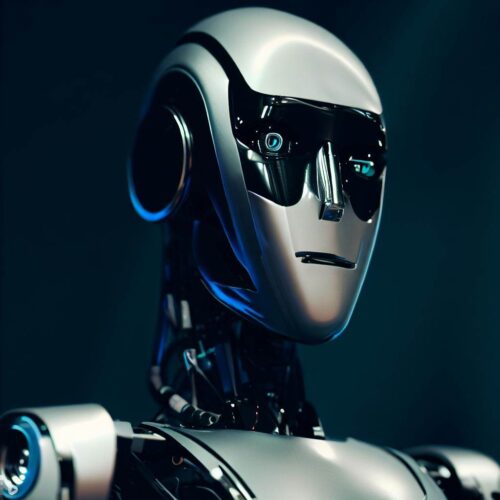Artificial intelligence (AI) is the science and engineering of creating machines and systems that can perform tasks that normally require human intelligence, such as vision, language, reasoning, decision making, and learning. AI has been advancing rapidly in recent years, thanks to the availability of large amounts of data, powerful computing resources, and breakthroughs in algorithms and techniques.
AI is transforming the world in many ways, from improving healthcare and education to enhancing entertainment and security. Here are some examples of how AI is making a positive impact on various domains and industries:
- Healthcare: AI can help diagnose diseases, recommend treatments, monitor patients, discover new drugs, and personalize medicine. For instance, AI can analyze medical images to detect signs of cancer, stroke, or infection. AI can also assist doctors and nurses by providing relevant information, reminders, or suggestions. AI can also enable telemedicine and remote care for patients who cannot access traditional healthcare facilities.
- Education: AI can help improve learning outcomes, access, and equity for students and teachers. For example, AI can provide adaptive learning systems that tailor the content and pace to each student’s needs and preferences. AI can also offer personalized feedback, guidance, and tutoring to students. AI can also create engaging and interactive educational content, such as games, simulations, or virtual reality. AI can also help teachers by automating grading, assessment, and administration tasks.
- Entertainment: AI can help create and enhance various forms of entertainment, such as music, movies, games, art, and literature. For instance, AI can compose original music, generate realistic graphics and animations, design immersive and intelligent game environments, and produce creative and coherent texts. AI can also help users discover and enjoy content that matches their interests and tastes.
- Security: AI can help protect people and assets from various threats and risks. For example, AI can detect and prevent cyberattacks, fraud, spam, and malware. AI can also recognize faces, voices, gestures, and emotions to verify identities and authenticate transactions. AI can also monitor and analyze video feeds to detect suspicious activities or anomalies. AI can also control autonomous vehicles and drones to perform surveillance or rescue missions.
These are just some of the many ways that AI is transforming the world for the better. However, AI also poses some challenges and risks that need to be addressed responsibly and ethically. For example, AI may raise issues of privacy, bias, fairness, accountability, transparency, safety, security, and human dignity. Therefore, it is important to ensure that AI is aligned with human values and goals, and that it is used for good purposes.
AI is a fascinating and powerful field that has the potential to improve the quality of life for billions of people. By understanding its capabilities and limitations, we can harness its benefits while minimizing its drawbacks. As the famous computer scientist Alan Turing once said: “We can only see a short distance ahead, but we can see plenty there that needs to be done.”

